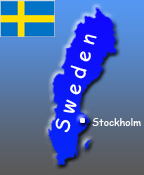Peace and social justice work efforts win Right Livelihood Awards
 Stockholm- Winners of the 2008 Right Livelihood Awards, often called the Alternative Nobel Prize, said Monday the awards would help efforts to give women a voice in war-torn Somalia and help female rape victims in conflicts ranging from the Balkans to the Congo.
Stockholm- Winners of the 2008 Right Livelihood Awards, often called the Alternative Nobel Prize, said Monday the awards would help efforts to give women a voice in war-torn Somalia and help female rape victims in conflicts ranging from the Balkans to the Congo.
Asha Hagi of Somalia and Swiss-born Monika Hauser, founder of German-based Medica Mondiale, shared the 2008 award with Amy Goodman of the United States, who founded the daily grassroots global TV/radio news hour Democracy Now, and Krishnammal and Sankaralingam Jagannathan of India, and their organization Land for the Tillers' Freedom (LAFTI).
This year's award is worth 2 million kronor (300,000 dollars) and was to be shared equally among the four award winners. The award ceremony was due Monday evening in the Swedish parliament.
A total of 91 candidates from 44 countries were nominated. The prize was created 1980 by Swedish-German philanthropist Jakob von Uexkull.
Speaking before the award ceremony, Hauser, who carries an Italian passport, said she would share her prize money between a Bosnian group she founded in 1993 and an organization working in the eastern parts of the Democratic Republic of Congo.
The Bosnian group was "struggling for economic survival," Hauser told Deutsche Presse-Agentur dpa noting that "donors just give money for two, three years after a crisis and not for the long-term."
The IPAIF group in Goma, eastern Congo is helping women and girls raped "after the new war started this summer," she said.
Hauser said conflicts were difficult to compare, but noted that in eastern Congo "there is such incredible brutality."
Some of the roots could be traced back to the Rwanda conflict and earlier, as well as traumatized and brutalized child soldiers.
In her view the international community should do more to press for the punishment of perpetrators of rape.
Hagi along with other women founded in 2000 the so-called Sixth Clan, and would use her award money to help female refugees in Somalia.
"The sidelining of women from political participation is history," she told dpa, expressing hopes that the Somali diaspora could also contribute to a viable solution for the country that since 1991 has lacked a central government.
Owing to threats and the insecure security situation, Hagi has for the past two years been based in Nairobi, Kenya.
Old age prevented Krishnammal Jagannathan from travelling to Stockholm, but his wife, Sankaralingman, 82, made the journey.
Their organization has distributed land to landless Dalit labourers in India's southern state of Tamil Nadu, would use its share of the prize money to build houses for poor people impacted by "natural calamities" and the cutting down of mangrove forests, she said.
It was "a fascinating breath of history, sitting next to a woman who worked with Gandhi," were both lauded for their "personal courage" von Uexkull told dpa after a news conference with the laureates.
Amy Goodman "has made sure that other voices were heard during these last eight years" in the US, he said.
Goodman criticized the concept of imbedded reporters deployed with US forces in Iraq, for instance.
Von Uexkull told dpa that the many women selected "certainly is a statement against the tendency to ignore half the human population when recognition for important work is given."
Last year, the prize was awarded to legal scholar Christopher Weeramantry from Sri Lanka and Dekkha Ibrahim Abdi of Kenya for bridging ethnic and cultural divides as well as Percy and Louise Schmeiser of Canada for work against genetic engineering of crops.
Bangladesh's Grameen Shakti organization was cited for its work to promote solar energy for the rural poor. (dpa)